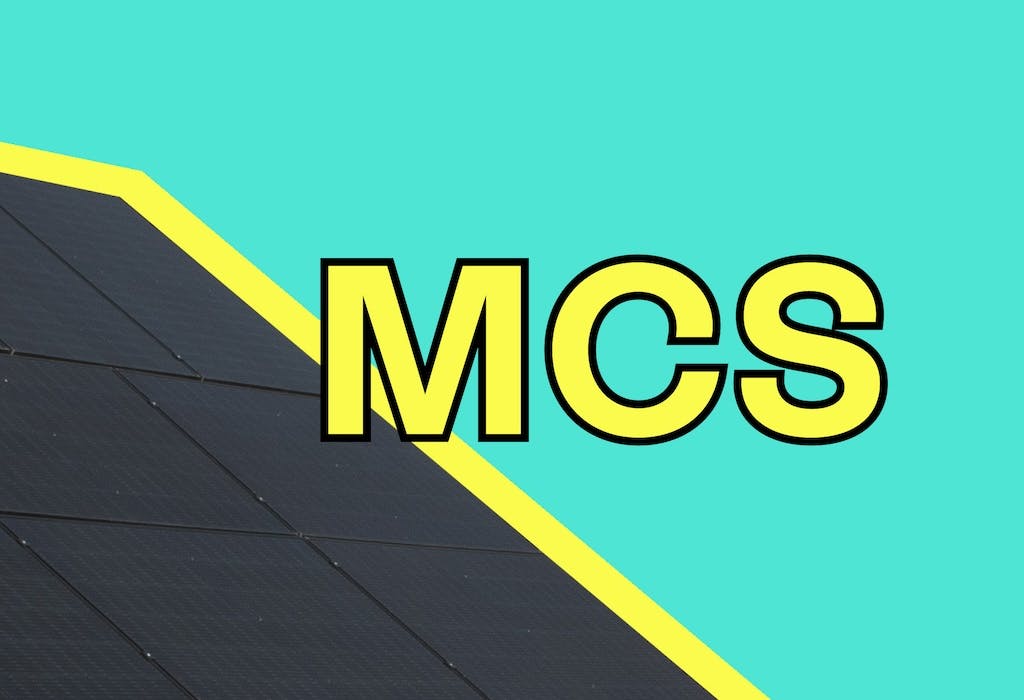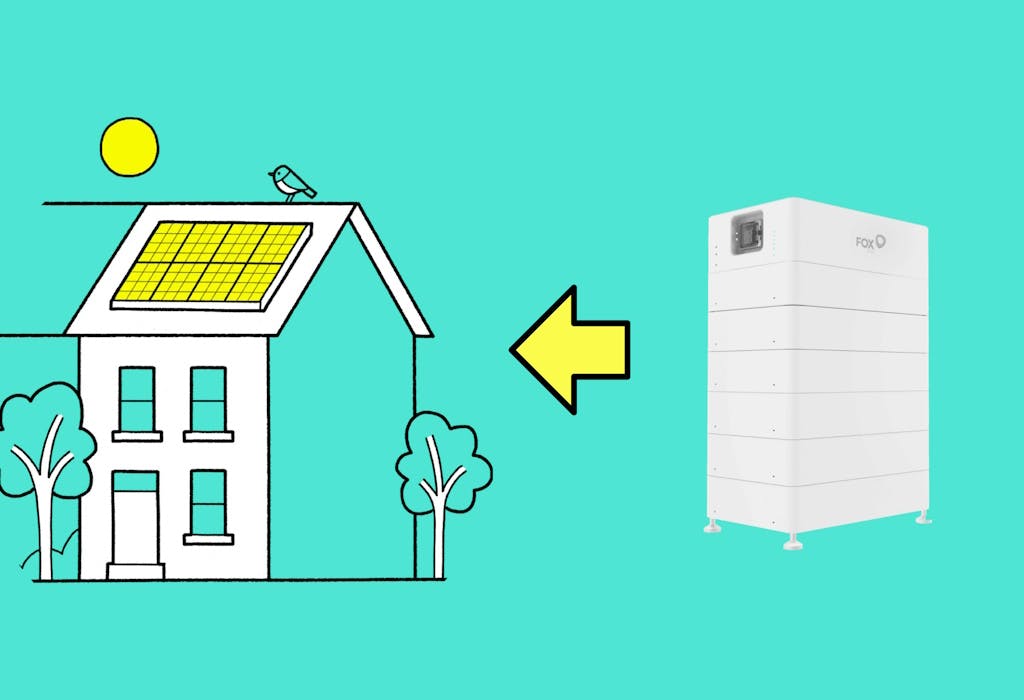- Solar advice hub
- Installation
- The Flexi-Orb scheme: explained
The Flexi-Orb scheme: explained
Here's what Flexi-Orb is, how it differs from MCS, and the benefits of hiring an installer that's been certified by Flexi-Orb.


Why you can trust our content
We know that the solar industry is full of misinformation, but we only use reliable sources, including:
- Our experienced solar experts, installers and system designers
- Our own database of solar & battery system designs
- Authoritative bodies like MCS and the UK government




Flexi-Orb: at a glance
When you’re getting a solar & battery system installed, you want the process to be professional, transparent, and carried out with top-tier kit.
Flexi-Orb is a certification scheme which ensures companies offer this level of service by thoroughly assessing and examining them, according to a host of different criteria.
In this guide, we’ll explain what Flexi-Orb is, the benefits of hiring an installer that’s certified by Flexi-Orb, and how it differs from the Microgeneration Certificate Scheme (MCS).
If you’re interested in how much you could save with a solar & battery system, enter a few details below and we’ll generate an estimate.
What is Flexi-Orb?
The Flexible Energy Oversight Registration Body, or Flexi-Orb, is a company that’s created an installation standards scheme for renewable technology.
The nationwide scheme, which is based in Lancashire, covers solar panel systems, storage batteries, and electric car chargers.
It was created to ensure installations meet the high level of quality that UK consumers deserve, instead of the rogue and incompetent traders that many have unfortunately experienced.
High-quality installations save more money and prevent more carbon emissions, which encourages more households to go green – and that gets us to net zero sooner.
Flexi-Orb’s scheme is the first of its kind to reach the International Organisation for Standardisation’s ISO/IEC 17067:2013 level, according to the United Kingdom Accreditation Service (UKAS) – the gold standard in the field.
This shows households how competent Flexi-Orb is, which allows them to buy renewable products with confidence.
And if anything does go wrong, customers will be able to get their dispute mediated, resolved, and – if necessary – handled by an ombudsman, because all Flexi-Orb certified installers are members of a Consumer Code.
Even if the installer goes out of business, customers are covered by an insurance-backed guarantee that ensures your original workmanship cover will continue – it’ll just be provided by a different company.
Benefits of using a Flexi-Orb certified installer
There are multiple benefits of using an installer that’s been certified by Flexi-Orb.
You’ll receive a high-quality product, installed properly, that allows you to profit from solar export tariffs which will pay you simply for sending your excess renewable electricity to the grid.
Your installer will also give you an accurate picture of how much electricity your system will generate, and they’ll have an insurance-backed guarantee that means your workmanship warranty will be covered, whatever happens.
Let’s run through all the best benefits of choosing a Flexi-Orb approved installer in more detail.
1. Top-quality installation
To gain Flexi-Orb certification, installers must pass a rigorous series of assessments – including an on-site visit – and prove that they both adhere to the body’s standards and independently demonstrate competence.
An installer that’s proven their worth to Flexi-Orb will have all the company infrastructure, experience, and resourcefulness that you’d want from someone working on your home.
They must also use products that Flexi-Orb approves, meaning you won’t get a sub-par system.
And installers’ standards can’t drop after certification. Flexi-Orb performs up to five on-site assessments each year, which a company must pass to ensure it retains its certified status.
2. Installer monitoring
As well as being analysed and examined on a continual basis, Flexi-Orb certified installers are also kept honest by customer reviews.
Flexi-Orb gives every customer who uses one of its approved installers the opportunity to rate, review, and upload photos of the service they received.
Installers are rated in four areas: customer service, punctuality and reliability, quality of workmanship, and sales process/person.
Flexi-Orb uses these reviews in its continued assessment of certified installers, and all 11,000+ of them will soon be made available for anyone to read on the new Renewable Energy Review Centre site.
3. Access to solar export tariffs
With a Flexi-Orb certified installation, you can gain access to solar export tariffs.
These tariffs, which are provided by all energy suppliers with at least 150,000 customers, will pay you for any electricity your system sends to the grid.
That means when it’s sunny, and your solar panel system is generating more electricity than your home needs, you can export the excess to power other households – and get paid for it.
All the most popular export tariff suppliers view Flexi-Orb as the equivalent of MCS in certification terms.
For instance, Octopus says in its export terms and conditions that “you should be able to demonstrate that the generation asset is suitably certified via the MCS certification, the Flexi-Orb; or an equivalent certification scheme”.
If you sign up to one of the best export tariffs, you can earn hundreds of pounds per year – on top of the money you’ll save by cutting your electricity bills.

4. Help and advice
Once you’ve used the services of a Flexi-Orb certified installer, you can access the company’s deep well of knowledge and advice for free, at any time.
Flexi-Orb can help customers who have questions about everything, from its certifying processes to which renewable grants and incentives households are able to access.
You can also find out which organisations are best to assist you at each stage of your project, how to go about getting quotes, and which documents you should receive at different points.
Plus, if no-one at Flexi-Orb knows the answer to your query, they’ll put you in touch with an expert in the subject area.
5. Insurance-backed guarantees
Every project undertaken by a Flexi-Orb certified installer is covered with an insurance-backed guarantee (IBG), which means the workmanship warranty will remain even if the company goes bust.
You can avoid becoming one of the horror stories of households whose installers went under, and were left with no-one to turn to when their system ran into trouble.
Installers must be members of an eligible Consumer Code to become Flexi-Orb certified, and all of these Codes require companies to supply customers with insurance-backed guarantees.
That way, if your installer does cease trading, the guarantee’s insurer will send over qualified tradespeople to deal with any issues.
6. Uses the leading solar savings methodology
Flexi-Orb installers use the System Advisor Model (SAM) when giving you a quote, to project your solar panel system’s performance and the financial benefits you’ll enjoy as a result.
SAM is the best system in the field, as it uses more accurate solar irradiance data than MCS, so you’ll receive a more accurate representation of what your savings will be.
SAM also takes account of smart battery controls, which allows you or your energy supplier to set your battery’s schedule remotely, to earn you more money. These controls allow you to maximise your profits, usually increasing your solar income by hundreds of pounds.
This all enables you to make a fully informed decision about this major household improvement, allowing you to get a system that properly suits your needs.
And if an installer is Flexi-Orb certified but not a member of the Energy Performance Validation Scheme (EPVS), you can always ask Flexi-Orb for a free EPVS validation to ensure the installer’s quote is legitimate.
EPVS is a certification standard that ensures solar & battery savings and performance estimates are accurate by validating installers’ processes.
7. Alternative Dispute Resolution
Once you have a system installed by a Flexi-Orb certified company, you’ll automatically gain access to a dispute resolution service, as mandated by their Consumer Code body.
That means that if something goes wrong and you disagree with your installer about how to settle the issue, you’ll be provided with a mediator who can go back and forth between you and the installer until you both agree on a resolution.
If necessary, the mediator can even arrange for an independent inspection of your system, to establish the facts of the situation.
Flexi-Orb vs MCS: what’s the difference?
The MCS used to be the main solar panel certification scheme, but with Flexi-Orb entering the industry, customers have a choice to make.
You may be more familiar with MCS, but there are many good reasons why Flexi-Orb is a safer, better choice for households around the country.
Flexi-Orb is different to MCS in four key ways. First and foremost, Flexi-Orb’s Installation Scheme has more stringent requirements, and requires more effort from installers.
Customers of Flexi-Orb certified companies are also protected by an insurance-backed guarantee, and they’re able to leave reviews that will be available to all customers who are looking for a renewable installation.
Let’s dig into the four main differences.
1. More rigorous installer checks
Flexi-Orb’s scheme assesses installers in a more in-depth, challenging way than MCS does.
With a Flexi-Orb certification, homeowners can feel confident that their installer is competent enough to pass a rigorous set of tests analysing the technical and customer service sides of their business.
It also shows companies how they can improve their practices, which results in a better standard of installer across the industry.
2. Better guarantees
Installers certified by Flexi-Orb must belong to a Customer Code that’s been approved by the Chartered Trading Standards Institute – and both of these Codes compel members to provide their customers with insurance-backed guarantees.
This means your workmanship warranty will be protected by an insurer should your installer go bust.
On the other hand, MCS is changing its scheme to remove the requirement for installers to be members of a Consumer Code.
If you use a Flexi-Orb certified installer, your system will definitely be covered by insurance-backed guarantee. If you choose a company certified by MCS, it won’t necessarily be protected in this way.
3. International recognition
Flexi-Orb has reached the top tier as a standards body, as proven by the fact that it’s achieved ISO/IEC 17067:2013 recognition from the International Organisation for Standardisation (ISO).
This collection of numbers and letters is a set of guidelines that forms the gold standard for certification schemes.
Getting this recognition means undergoing an extremely challenging process that can take years. Flexi-Orb is the first renewables scheme to get to this level, beating MCS to the honour.
This means Flexi-Orb certified installers are obliged to deliver a higher level of quality in their work.
It also means Flexi-Orb is continually assessed by UKAS – the organisation that assesses the assessors – to make sure it’s still meeting all the necessary criteria.
4. Consumers can leave reviews
Customers can review and rate their Flexi-Orb certified installer, as well as uploading photos of their installation.
They can even do so anonymously, if they choose.
Reviewers are asked questions about four areas of their installer’s work, namely customer service, punctuality and reliability, quality of workmanship, and sales process/person.
Once the new Renewable Energy Review Centre site is live, all 11,000+ of these reviews will be free for anyone to read and come to better, more informed decisions.
Is Flexi-Orb or MCS certification mandatory?
Neither Flexi-Orb nor MCS certification is mandatory for a household installation, so you can get solar panels installed on your roof without using certified tradespeople or products.
However, you’d miss out on a number of benefits that make going solar worth it in the first place.
Choosing an installer with one of these certifications allows you to access solar export tariffs, which can earn you hundreds of pounds each year, on top of your savings from reduced electricity imports.
Any future grants or schemes like the Smart Export Guarantee, which led to the creation of solar export tariffs, will almost certainly require that your system has one of these certifications.
And most importantly, a certified system should be installed to a high standard, and function as well as it possibly can.
Considering solar panels can last 40 years or more, it’s worth doing everything you can to ensure they work properly throughout – and hiring a certified installer who’ll use top-tier products is a crucial first step.
How does an installer become Flexi-Orb certified?
If an installer is certified by Flexi-Orb, it means they’ve been examined and analysed by multiple certification bodies, and passed all their tests.
To be certified, installers must be a member of a Consumer Code, which is a set of standards created to ensure companies serve their customers properly.
The Renewable Energy Consumer Code (RECC) and the Home Insulation and Energy Systems Quality Assured Contractors Scheme (HIES) are the only Codes to have been approved by the Chartered Trading Standards Institute, so they’re the only ones Flexi-Orb recognises.
Installers must also pass an assessment based on Flexi-Orb’s Installation Scheme, conducted by either Simply Certification or Blue Flame Certification – which are both trusted certification bodies.
As well as following the scheme’s rules, installers have to clearly display enough knowledge, experience, and skills to prove their competence – and this applies to everyone involved in the supply, design, and installation processes.
Any hardware the installer uses must be on Flexi-Orb’s list of approved products, which all meet a strict set of criteria laid out in its product policy document.
It’s not just about the physical installation, either. When a certified installer is making a sale, the terms must be clearly communicated, the customer must be educated on the deal, system, and design they’re paying for, and they must receive sufficient support.
Plus, once the installation is complete, the customer has to be left with a system that at least meets their expectations.
After a successful assessment, to make sure installers continue to follow Flexi-Orb’s rules, assessors will make up to five visits to installation sites every year.
Summary
Getting a Flexi-Orb certified installer is the best way to ensure that your solar & battery system is made up of high-quality gear that’s fitted properly.
You can expect a helpful, informative sales journey that provides you with a fully data-driven prediction of your system’s output, followed by a high-quality installation carried out by reliable, punctual tradespeople.
If you have any questions, the installer should be able to answer them fully – and if anything goes wrong, Flexi-Orb will have your back with expert guidance and advice.
If you’d like to know how much you could save with a solar & battery system, enter a few details below and we’ll generate an estimate.
Flexi-Orb vs MCS: FAQs
Related articles

The MCS certificate for solar panels: an expert guide
Read full story
How are solar panels installed?
Read full story
Solar battery installation: step by step
Read full story
The 10 best solar panel installers in the UK
Read full story
Written byJosh Jackman
Josh has written about the rapid rise of home solar for the past six years. His data-driven work has been featured in United Nations and World Health Organisation documents, as well as publications including The Eco Experts, Financial Times, The Independent, The Telegraph, The Times, and The Sun. Josh has also been interviewed as a renewables expert on BBC One’s Rip-Off Britain, ITV1’s Tonight show, and BBC Radio 4 and 5.